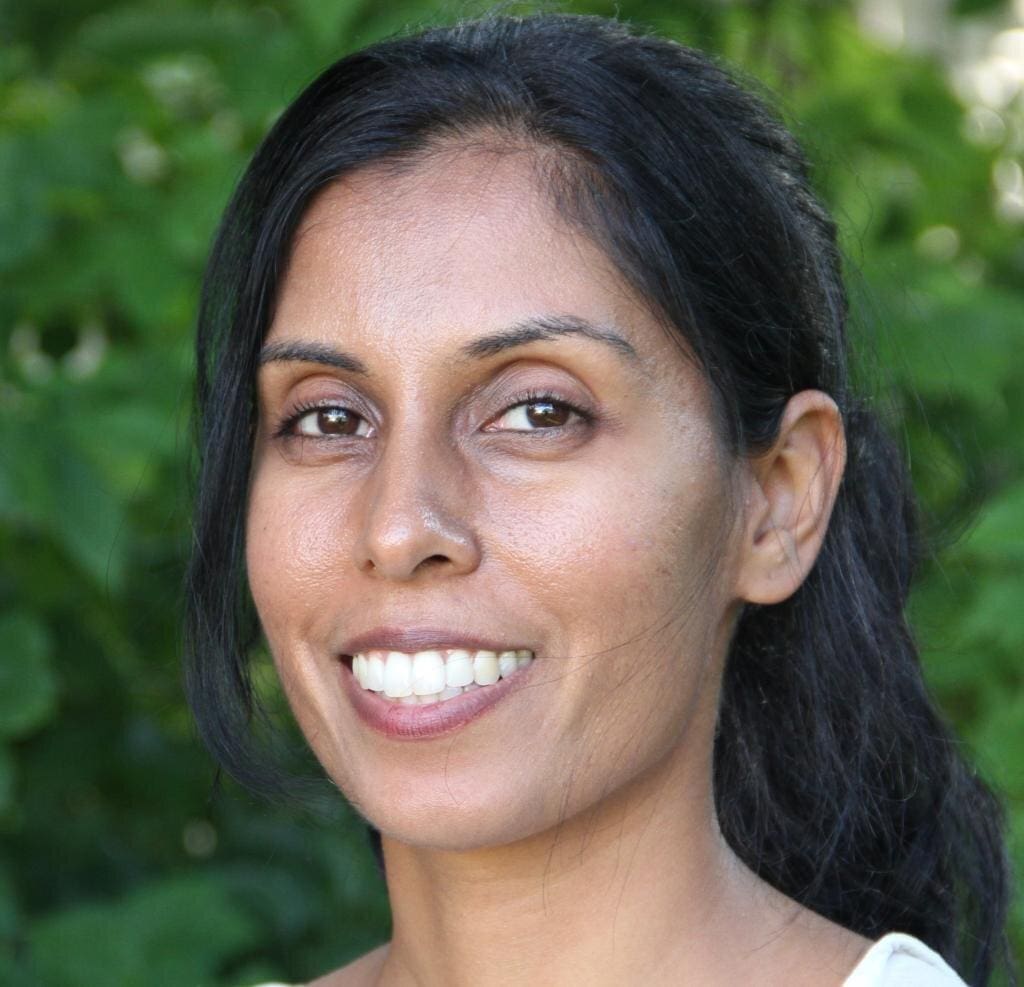The inaugural episode of ‘Beautiful Journey’ welcomed Jina Krause-Vilmar, President and CEO of Upwardly Global.
By Justin Chapman
In a new podcast series by Michelson Philanthropies Co-Chair Alya Michelson called “Beautiful Journey,” Upwardly Global President and CEO Jina Krause-Vilmar said their partnership on the Career Skills Program is unique for its hyperfocus on immigrant women.
“Upwardly Global works with immigrants and refugees—professionals in their home countries—who come here and are underemployed and really struggle to get back into their careers,” Krause-Vilmar said in the inaugural podcast episode. “Over the years, we’ve started to build up our women’s programming, where 50 percent of the people we serve are women, which feels really meaningful.”
Listen to the full conversation here.
In May, Michelson’s FirstGen Initiative partnered with Upwardly Global to launch the Career Skills Program, which supports immigrant women moving from low-skilled jobs or unemployment to full employment relevant to their education and professional backgrounds that provides not just a living wage but a thriving wage for themselves and their families. Since May, eight L.A.-based immigrant women have enrolled in the program, representing Upwardly Global’s first all-female cohort.
Krause-Vilmar added that the Career Skills Program, in particular, allows women to connect with their peers and, through those interactions, help motivate and support each other through their journey of getting back into their careers in a new country.
“For a lot of our women, they are time-poor,” she said. “They struggle with childcare and managing the household and then trying to get back into their professional career and find a job. And so, having this community and this flexibility to do it in a space where they know other women [on the same journey] is really meaningful. Many women felt isolated during the pandemic. So this has actually been such a well-timed lifeline for a lot of our women job seekers, especially when 3 million women have left the workforce [during the pandemic].”
“We need to start viewing these refugee women as assets, and not as a burden, by helping them integrate into some kind of an economic recovery or economic integration strategy for the country.”
—Jina Krause-Vilmar
Krause-Vilmar added that the eight women who have enrolled in the Career Skills Program come from diverse backgrounds, both in terms of their country and their industry. The group includes software engineers, business analysts, financial accountants, and other professionals from China, India, Ukraine, Russia, Ethiopia, Uganda, and other countries.
“It’s just this beautiful group of women who come from all different walks of life,” she said. “Some of them are unemployed, and some of them are working in survival jobs. Being able to organize, work on their career plans and the skills training that they’re doing, and to connect with each other has been really powerful.”
Michelson also asked Krause-Vilmar about the humanitarian crisis in Afghanistan and how women, in particular, are at risk.
“We’re seeing what’s unfolding in Afghanistan right now, which is obviously tragic,” Michelson said. “It’s likely to get worse in the coming weeks and months, and there will likely be a surge of refugees fleeing Taliban rule. Women are in particular danger. How can nonprofits and non-governmental organizations help?”
Krause-Vilmar replied that a massive outflow is expected, particularly of women and children, from Afghanistan into Pakistan. She pointed out that women often have fewer resources to get out, so they usually take the most dangerous routes to escape.
“We really need to start thinking about setting up educational and economic opportunities for people on day one,” she added. “In order to do that, we need to be working with the Pakistani government to start viewing these refugee women as assets, and not as a burden, by helping them integrate into some kind of an economic recovery or economic integration strategy for the country.”

